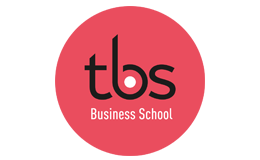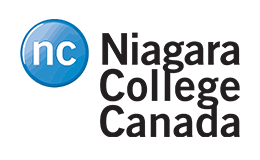College Enrollment : Answers to Questions that Highschoolers have
College Countdown: Answering the 20 Most Important Questions High School Students Have About Going to College

College Countdown: Answering the 20 Most Important Questions High School Students Have About Going to College
1. Where do I start?
Starting your college application journey can feel like standing at the foot of a mountain. Do just one thing at a time. First, find out more about the schools you're interested in. Think about things like the school's location, size, offered majors, culture, and extracurricular activities. Make a list of possible places that you want to learn more about. If you want to learn more, try to go to college fairs, virtual information sessions, and school tours. Be ready to think about different things and keep an open mind.
2. When should I start working on my applications?
While it's never too early to begin planning, try to start applying in your final year of high school. This allows you plenty of time to compile the proper paperwork, compose essays, and finish any standardized tests that may be needed. Application deadlines can differ from college to college, so keep that in mind. Beginning early also gives you the flexibility to manage any unforeseen difficulties or changes that may come up during the process.
3. What should I include in my application?
Use your college application to highlight your personality and accomplishments beyond grades and test results. Don't forget to include your CV, academic background, extracurricular activities, volunteer experience, and any accolades or prizes you've won. Remember to submit well-considered essays that accurately capture your character, principles, and goals. Recommendation letters from mentors, professors, or counselors who have had a lot of experience with you can also offer insightful information about your abilities and character.
4. How important are my grades and test scores?
Without a question, test results and grades are significant since they reflect your aptitude for academic work and your preparedness for college-level coursework. They are only a single component of the puzzle, though. Colleges also take into account personal experiences, letters of recommendation, extracurricular activities, and essays. In other sections of your application, emphasize your strengths if your test results or grades aren't as strong as you'd like them to be.
5. What should I write in my essays?
Colleges can learn more about your personality and potential contributions to the school community from your essays. Take advantage of this chance to talk about a significant experience, a personal struggle you overcame, or your hopes and dreams for the future. Be sincere, open, and thoughtful. By giving vivid stories and concrete instances, you may show rather than explain. Always check and edit your essays before submitting them, and don't be hesitant to show off your own flair.
6. Who should I ask for letters of recommendation?
Choose people who know you well and can attest to your character, academic prowess, and personal attributes to write your letters of recommendation. This may be a mentor who is familiar with you outside of school, a guidance counselor who has worked closely with you, or a teacher who taught one of your core topics. Give them plenty of time to compose a considerate letter on your behalf, and make sure to ask nicely.
7. How do I manage my time effectively during this process?
The secret to completing the college application process successfully is time management. Make a timeline with due dates for each stage of the process and divide it up into smaller, more doable tasks. Allocate a certain time slot every week to complete your essays, applications, and other necessary tasks. Sort jobs according to their urgency and significance, and don't forget to plan breaks and self-care activities to prevent burnout. Use calendars, checklists, or digital planning tools to stay organized while keeping tabs on your progress.
8. What if I'm unsure about my major or career path?
Feeling unsure about your future professional path is quite common, especially at this point in your life. Keep in mind that your college years are meant for exploration and learning. Prioritize pursuing your interests, enrolling in a variety of courses, and obtaining practical experience through extracurricular activities or internships. To find out more about your beliefs, strengths, and possible career options, think about scheduling a career assessment or talking with a career counselor. Along the journey, be willing to investigate new opportunities and maintain an open mind.
9. How can I make my application stand out?
Emphasize your accomplishments, interests, and distinctive experiences in order to make your application stand out. Highlight your leadership experience, volunteer work, extracurricular activity, and any unique skills or interests you may have. In your writings and interviews, be true to yourself and show off your individuality. Show that you are passionate about learning and dedicated to improving your community. Keep in mind that universities are searching for students who will make significant contributions to the campus community, so highlight your unique qualities.
10. What if I don't get into my dream school?
Rejection is difficult, particularly in cases like this where college admissions are concerned. But it's important to keep in mind that rejection doesn't determine your value or chances of success in the future. Decisions about admittance to colleges are based on a variety of variables; sometimes it's just a question of timing or fit. Remember that there are many other excellent institutions where you can succeed if your ideal school is not accepted. Explore your possibilities, have an open mind, and have faith that all will work out in the end.
11. How do I handle college interviews?
Researching the university, preparing standard interview questions, and practicing your answers will help you become ready for college interviews. During the interview, present yourself as yourself, dress accordingly, and come on time. Take use of the chance to highlight your personality, zeal, and suitability for the institution.
12. Should I apply for early decision or early action?
You can submit your college applications ahead of schedule if you choose early decision or early action. Early action is non-binding, but early choice is, which means you commit to attending that institution if accepted. To decide which option is ideal for you, take into account your preferences, level of preparedness, and dedication to the school.
13. How do I demonstrate interest in a college?
Proven interest is a common criterion that colleges consider when making admissions decisions. Attend information sessions, campus visits, and online activities that the college hosts to demonstrate your interest. After visits or interviews, follow up with admissions representatives to let them know you're still interested in the program.
14. What if I can't afford application fees or college visits?
For students in need of financial assistance, many universities waive the application fee. To find out about opportunities for fee waivers, visit the websites of each college or get in touch with the admissions office. To find out more about universities without having to pay for trip, investigate additional free resources including online information sessions, virtual campus tours, and other resources.
15. How do I decide between colleges if I'm accepted to multiple schools?
When choosing between institutions, take into account elements including academic programs, financial assistance packages, campus culture, location, and extracurricular activity options. Create a list of the benefits and drawbacks of each institution, try to visit campuses, and follow your gut when selecting the one that best suits your needs.
16. What if I'm homesick or struggling to adjust to college life?
It's common to feel homesick or find it difficult to acclimate to college life, particularly in the initial weeks or months. For help, get in touch with the student support services, resident hall staff, or counseling center at your campus. Rely on mentors, friends, and family for support, and never forget that it's acceptable to ask for assistance when you need it.
17. How do I manage my time and stay organized in college?
Organize your time effectively by making a calendar, setting priorities, and dividing large work into smaller, more manageable ones. To remember obligations, deadlines, and assignments, use a planner or digital calendar. Make time for studying, attending courses, and engaging in extracurricular activities. Don't forget to plan time for rest and self-care as well.
18. What resources are available for academic support in college?
Numerous academic support services are provided by colleges, such as study groups, writing laboratories, academic advice, and tutoring facilities. Use these tools as soon as possible to help you learn more effectively, develop better study habits, and achieve academic success.
19. How can I get involved on campus and find my community?
Look into student organizations, clubs, and clubs on campus that share your passions, interests, and pastimes. Go to events, informational meetings, and club fairs to locate your community and meet like-minded people. Participate in leadership positions, volunteer work, and campus events to enhance your college experience and create lasting relationships.
20. What if I change my mind about my major or career path in college?
As they pursue new interests and identify their skills, college students frequently alter their majors or career trajectories. Utilize chances for experiential learning, career counseling, and academic advice to broaden your horizons and help you decide on your academic and professional objectives. Never forget that you may always change your direction in life and follow your passions.





































.png)









.png)
























.png)















.png)





